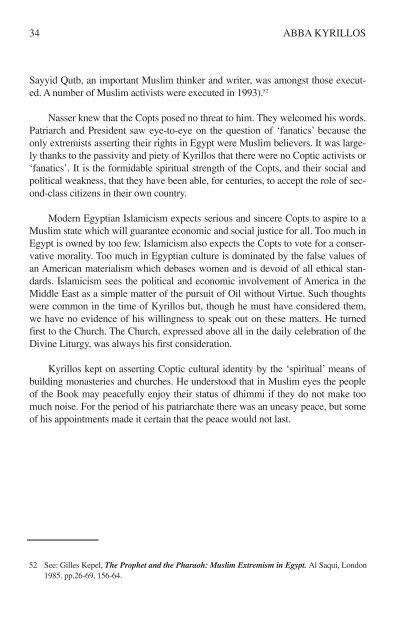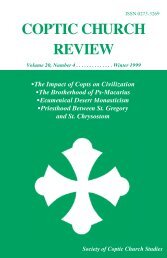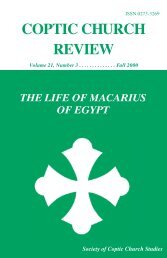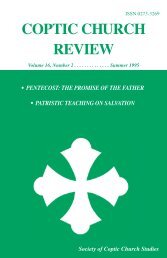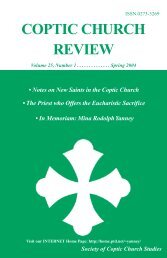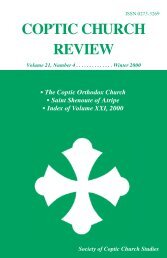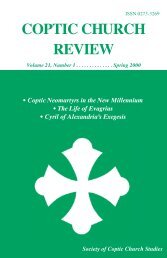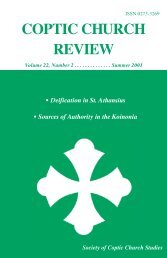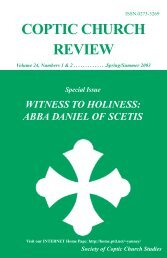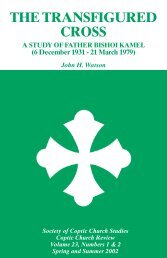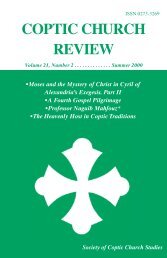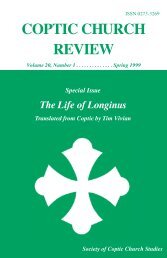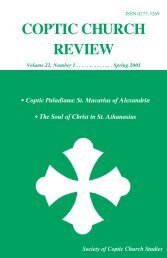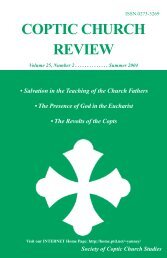ABBA KYRILLOS - Coptic Church Review
ABBA KYRILLOS - Coptic Church Review
ABBA KYRILLOS - Coptic Church Review
- No tags were found...
Create successful ePaper yourself
Turn your PDF publications into a flip-book with our unique Google optimized e-Paper software.
34 <strong>ABBA</strong> <strong>KYRILLOS</strong>Sayyid Qutb, an important Muslim thinker and writer, was amongst those executed.A number of Muslim activists were executed in 1993). 52Nasser knew that the Copts posed no threat to him. They welcomed his words.Patriarch and President saw eye-to-eye on the question of ‘fanatics’ because theonly extremists asserting their rights in Egypt were Muslim believers. It was largelythanks to the passivity and piety of Kyrillos that there were no <strong>Coptic</strong> activists or‘fanatics’. It is the formidable spiritual strength of the Copts, and their social andpolitical weakness, that they have been able, for centuries, to accept the role of second-classcitizens in their own country.Modern Egyptian Islamicism expects serious and sincere Copts to aspire to aMuslim state which will guarantee economic and social justice for all. Too much inEgypt is owned by too few. Islamicism also expects the Copts to vote for a conservativemorality. Too much in Egyptian culture is dominated by the false values ofan American materialism which debases women and is devoid of all ethical standards.Islamicism sees the political and economic involvement of America in theMiddle East as a simple matter of the pursuit of Oil without Virtue. Such thoughtswere common in the time of Kyrillos but, though he must have considered them,we have no evidence of his willingness to speak out on these matters. He turnedfirst to the <strong>Church</strong>. The <strong>Church</strong>, expressed above all in the daily celebration of theDivine Liturgy, was always his first consideration.Kyrillos kept on asserting <strong>Coptic</strong> cultural identity by the ‘spiritual’ means ofbuilding monasteries and churches. He understood that in Muslim eyes the peopleof the Book may peacefully enjoy their status of dhimmi if they do not make toomuch noise. For the period of his patriarchate there was an uneasy peace, but someof his appointments made it certain that the peace would not last.52 See: Gilles Kepel, The Prophet and the Pharaoh: Muslim Extremism in Egypt. Al Saqui, London1985. pp.26-69, 156-64.


